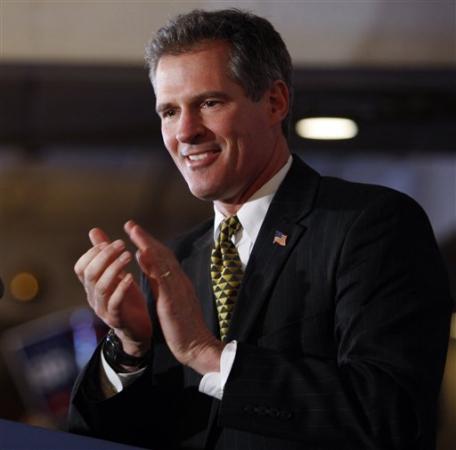I am at times identified as a conservative by some and a libertarian by others. Personally, I don't mind either label taken within context, and I frequently self-identify as both. However, when talking to someone who understands the massive web of ideological labels about my libertarianism, I often admit to being a
paleolibertarian. Moreover, I don't only self-identify; I've tested this way in a number of ideological tests set to determine political ideology. So I guess I really am.
So what does all this mean? Why is it important? Well...to be honest, it is not
always important. Whether I call myself a conservative, a libertarian, a paleoconservative, or a paleolibertarian, after talking with me about political policy and theory, it soon becomes quite clear that I merely believe in the unalienable rights of the individual and the strict restraining of the state. Therefore, what I am called will in no way affect my beliefs, my stances, or your agreement with my positions. But that does not mean there are not times that when it is very important to properly show where we hang our philosophical hat. (I hang my beside Jefferson on the rack of classical liberalism, by the way.)
The reason for different ideological identifiers is simply to offer distinction among differing positions. Some think that by not calling themselves conservative, and instead identifying as libertarian, they have solved their identity problem. Sadly, I am here to tell you that such is not the case. Not all libertarians are created equal...heck, some aren't even really libertarians.
There are a number of different movements and segments that fall underneath the libertarian banner, but there are two main groups that represent the libertarian movement of today--beltway libertarians also known as mainstream libertarians and what are called
laissez faire libertarians, paleolibertarians, or Austrian libertarians. The former group is made up of those from places like the Cato Institute, the Reason Foundation, and some in the Libertarian Party. The latter is made up of Mises Institute scholars and associates as well as other economic Austrians. The former represents more mainstream libertarianism and the actors that go along with that like Koch and Friedman. The latter is represented by those like Ron Paul, Lew Rockwell, Murray Rothbard, F.A. Hayek, and Ludwig von Mises.
Needless to say, Beltway libertarianism is feeling a little left out by the current rEVOLution going on among many, spurred on by Ron Paul's 2008 presidential bid. However, this is no new divide. Long before Congressman Paul came to national prominance, he was known in libertarian circles. Some liked him, but some of our beltway brothers were less than enthusiastic about the good doctor from Texas. The reason: many of them are not interested in philosophical purity. While many of them might at one time might have held positions of the Old Right, they have long since abandoned them. Many are now pro-war, pro-partisanship, and (dare I say) pro-state. Corrupted by the plagues of Washington, they now despise anyone who hasn't been themselves corrupted.Therefore, they never miss an opportunity to trash Paul and others who still remain committed to anti-statist policies.
Just look at the Cato Institute's Brink Lindsey's comments:
“Though Paul defines himself as a libertarian and attributes the dedication of his young supporters to libertarian positions — such as allowing people to opt out of Social Security and Medicare — many libertarian pundits say Paul isn’t in sync with younger, more ‘modern’ libertarians...He’s sort of an old-style, old-right libertarian candidate. Paul departs from younger libertarians with his opposition to abortion rights and free trade agreements, for example.”
I would have to disagree with Mr. Lindsey based on the vast display of evidence. Young people are the very lifeblood of Paul's movement. Moreover,
Linsey's pro-war position has done nothing to rouse youth support for himself or his organization.
Lindsey is not alone in his dislike for Ron Paul and libertarians of his kind (Though the above quotation seems harmless, I assure you Lindsey is no fan of a number of Paul's policies.)
Reason magazine editor, Nick Gillespie notes the following:
“[Paul] has a set of principles applied consistently. He’s not a bulls**t artist...I think that’s very attractive to younger voters who are too stupid to realize that’s not how politics works.”
There you have beltway libertarianism in a nutshell--proud of compromise and condescending to those that are not. Well...Mr Gillespie, Ron Paul supporters are far from stupid, and politics isn't working; that is the problem. These guys have snuggled up to the state and are awfully upset that others have not.
I rather enjoyed Justin Raimondo's
commentary on Gillespie's words:
"Yeah, those poor dumb jerks, who actually believe that principles matter, and individuals can act to make history: they’ll soon learn! This is the typical mantra of the Beltway know-it-alls, who have no real connection to the actually-existing libertarian movement—Gillespie came out of a short-lived online magazine entitled “Suck”—and wouldn’t lower themselves, either. That doesn’t stop these generals without an army from pontificating, judging, and often belittling the movement, and especially cultural conservatives like Ron Paul, who don’t fit into their own narrow little cultural paradigm."
So, as you can see from the above examples, there is a quite a divide between beltway libertarians and movement purists like the Paulites.
This does not mean that the divide cannot and is not often overcame. Moreover, just because someone is affiliated with Cato or Reason that doesn't mean that they are beltway in their thinking and actions. Even if they are, that doesn't mean they are not good folks with good ideas. Many fine people are involved with both organizations, and I am a fan of each. I profit from their resources and value their contributions to liberty. However, I often have to keep a closer eye on them as I know what some in the beltway movement pursue and support.
This post came about as I read
this article Wednesday. I thought some might question why a Reason article would be so harsh on Ron Paul, and I wanted to provide an answer. Tomorrow, I will provide a response to the article and more on the beltway libertarians. But for now I have taken enough of your time. Just remember that not all libertarians view things the same way, not even broadly. You can support both (and I encourage you to do so,though I obviously identify with the Paul movement more myself), but know that each side is not necessarily supporting each other all of the time.
To be continued...
PS: If you have any questions or concerns on the matter, I cannot promise to have all the answers, but I'll address them the best I can. Just leave questions or comments in the comments.














